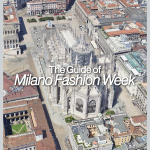
Amazon could launch a luxury platform in 2020
The e-commerce giant has not commented at this time
January 13th, 2020
In 2020, the online luxury market, both primary and secondary, will continue to grow. With the rise of e-commerce and the new luxury, brands can reach much larger audiences than in the past, better analyze their behaviors, and provide their customers with a range of experiences and services that increase their engagement. Now Amazon also wants to enter this market. An anonymous source told WWD that Amazon is reportedly working on the launch of a new luxury e-commerce platform. According to WWD, a 100-million-dollar marketing campaign is already in the pipeline, along with setting up a warehouse in Arizona. Although an Amazon representative chose not to comment, Tomorrow London's chief development officer, Julie Gilhart, has always revealed to WWD that Jeff Bezos's company has been planning an expansion into the luxury field since 2012. The new platform should work with a concession system, becoming a kind of digital shopping center, and mimicking the operation of the Luxury Pavillion of Chinese e-commerce site T-Mall.
Would such a move make sense for Amazon? In the case of the Chinese market, the existence of an e-commerce platform dedicated to luxury products responds to the growing demand developed in the nation's smaller cities. But when it comes to the Western market, not only is the direct retail of luxury brands much more present at the city level, but there are already efficient distribution networks developed and managed by the brands themselves. Understanding the potential innovative role that a possible luxury platform could pose as the main challenge for Amazon – a brand that, moreover, is associated more with the sale of everyday items and technological gadgets than fashion. For the dynamics proper to its structure, then, Amazon is more a "container" of brands than a brand itself, making the issue of brand managing the problematic. One could see, in the mechanism of concessions, an attempt to circumvent the problem that would leave the management of brands and their image in the hands of the brands themselves, but there is still a lack of information to know if the measure will be sufficient .
Stay connected to nss magazine for all updates on Amazon's luxury e-commerce platform.

























































